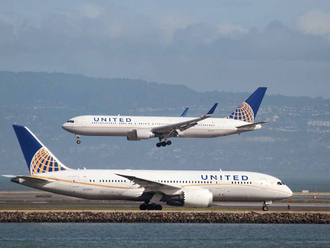Caracas: Venezuela’s attorney-general raised the stakes in her standoff with the government Tuesday by demanding eight Supreme Court judges loyal to President Nicolas Maduro be put on trial.
A staunch figure of the ruling party, Attorney-general Luisa Ortega, 59, is the highest public official to break ranks with Maduro over the country’s deadly political crisis.
She has accused him and his allies of acting unconstitutionally in their standoff against the opposition in recent months of antigovernment protests.
In her latest manoeuvre to pressure the socialist president, she told reporters she’d filed a case accusing the eight judges of allowing “a breakdown in constitutional order.”
The charge refers to a ruling by the court in late March that seized power from the opposition-controlled National Assembly legislature.
The court later revoked the decision under international pressure, but it sparked a series of protests that has continued ever since.
Clashes between demonstrators and police have left 67 people dead, according to prosecutors.
Ortega said in a radio interview on Monday that intelligence officials had been threatening and harassing her family.
Pro-government lawmaker Pedro Carreno filed a motion in the assembly calling for the court to order that Ortega be examined by a psychologist.
“It is clear that this lady is not in her right mind,” he told reporters. He called for experts to declare she was suffering from “insanity” and should be fired.
Former Supreme Court judge Blanca Rosa Marmol told journalists the assembly was the only body legally entitled to remove an attorney-general from her post.
Analysts say Ortega’s legal challenges to the government could widen divisions in Maduro’s camp, making it harder for him to stay in power.
Last week, she filed a challenge against his effort to rewrite the constitution, branding it undemocratic.
The court dismissed the appeal on Monday, but Ortega promptly responded with a new series of legal challenges against the judges.
Maduro is accused of controlling the Supreme Court, which has fended off numerous legal and legislative moves against him over the past year and a half.
Protesters blame him for an economic crisis that has caused desperate shortages of food and medicine in the oil-rich country.
Maduro says the crisis is a US-backed conspiracy. He retains the public backing of the military.
“Whether it rains, thunders or lightens on July 30 there will be elections,” Maduro said, referring to the constitutional assembly he wants to rewrite the document to expand his powers. “And in August, we’ll have our constituent assembly,” he said.
Maduro says the reforms are in response to the protests, but his opponents say that is a mere ploy to cling to power.
A survey by pollster Datanalisis indicated that 85 per cent of Venezuelans opposed Maduro’s plan.












